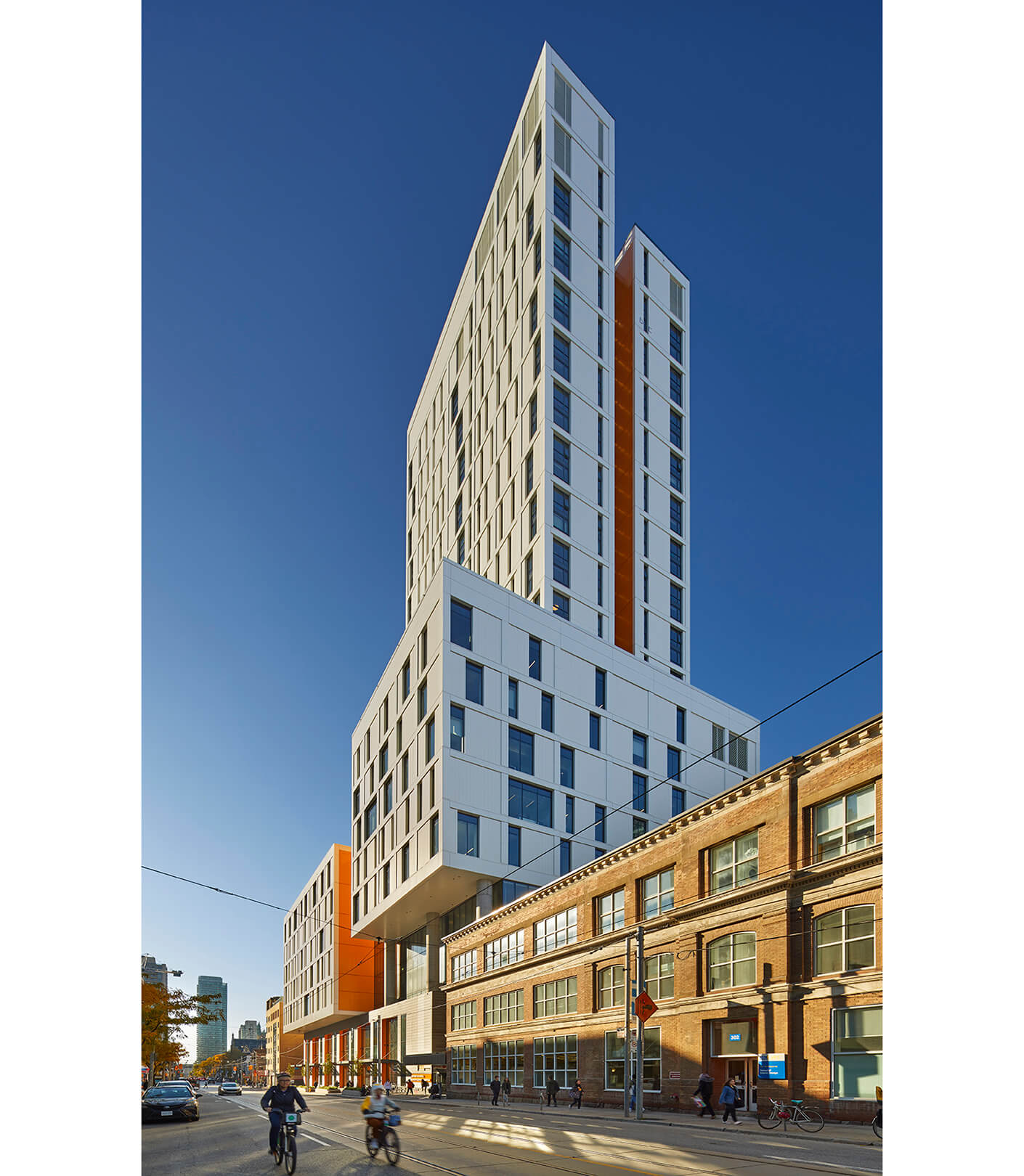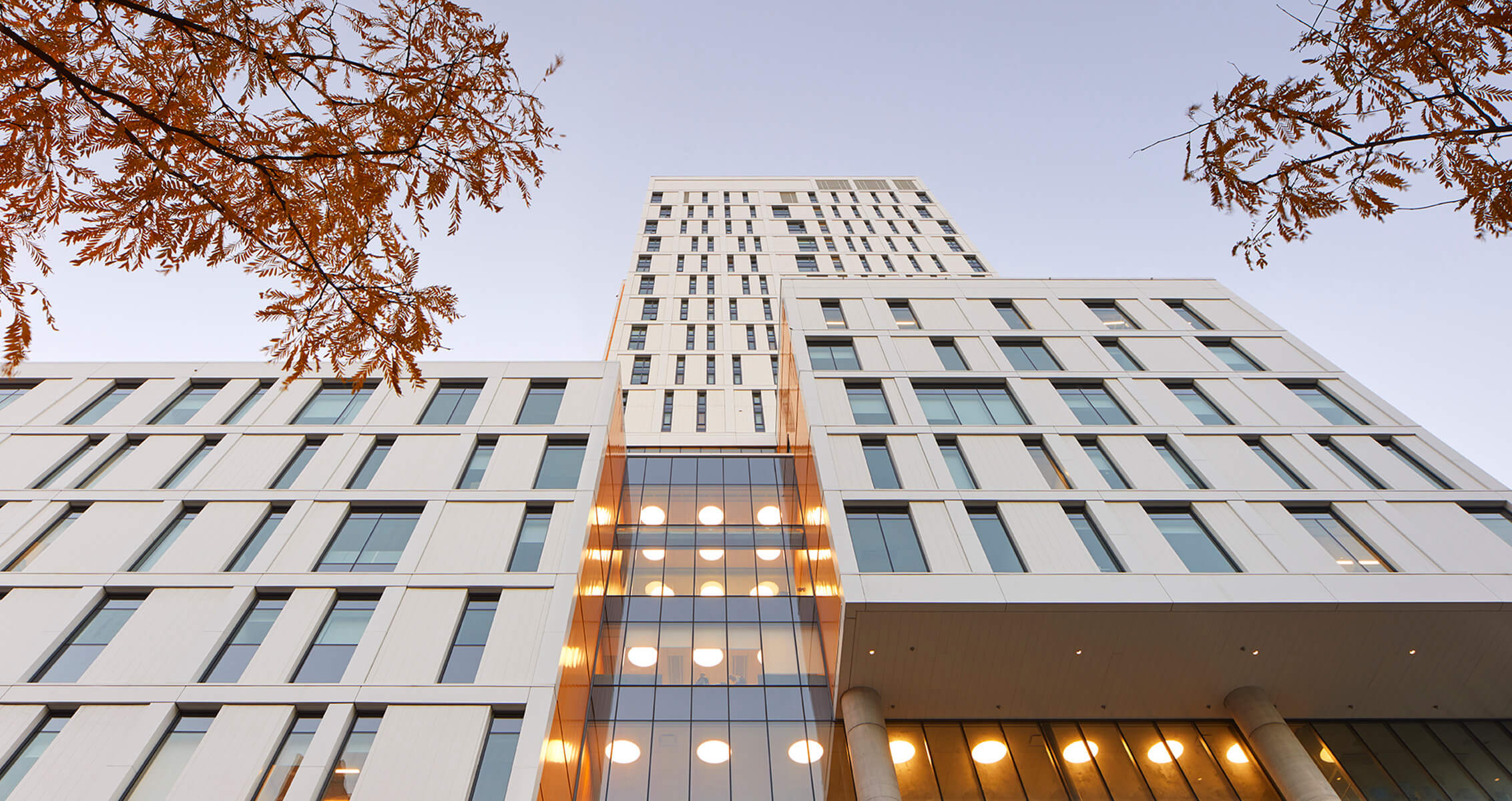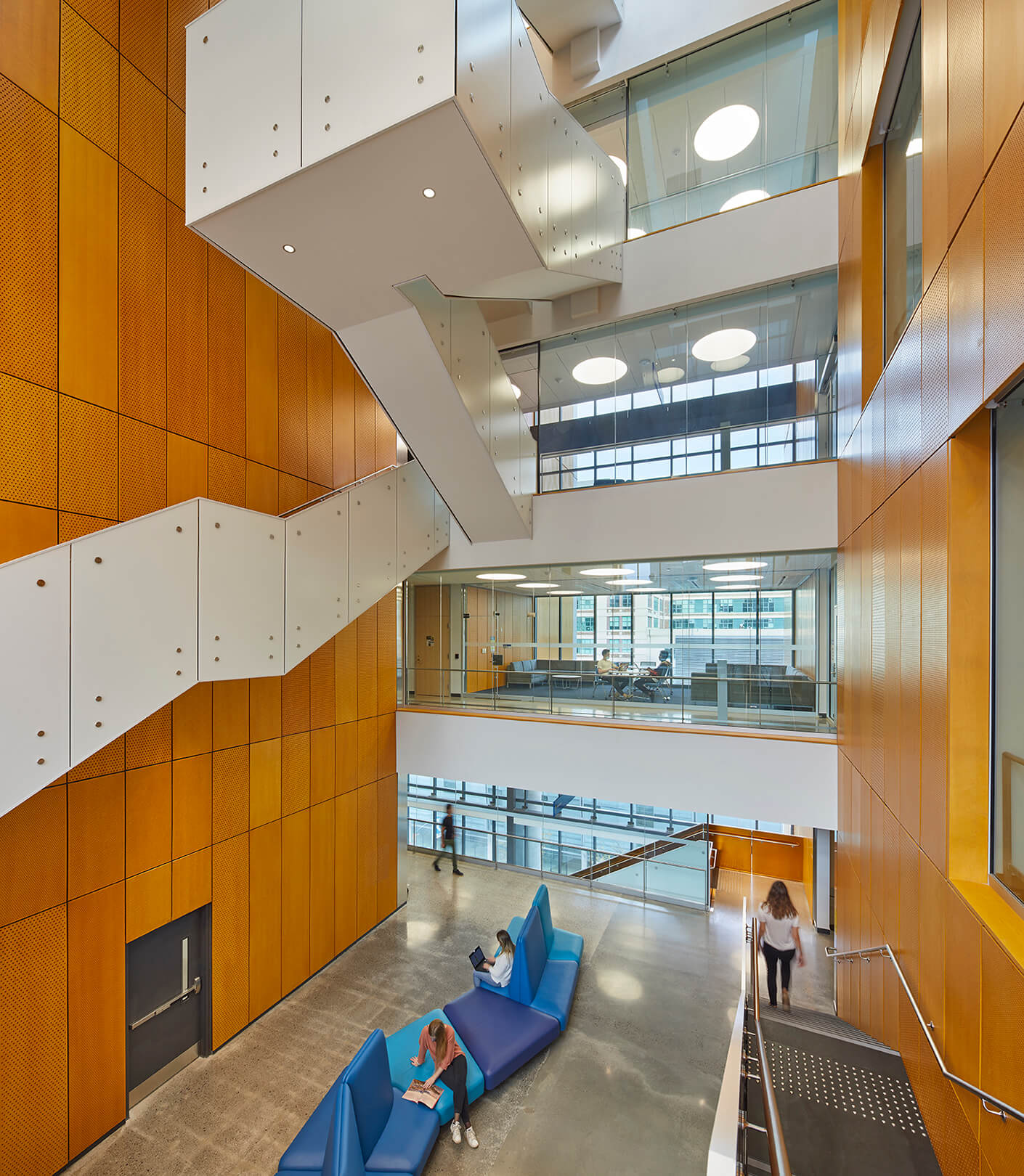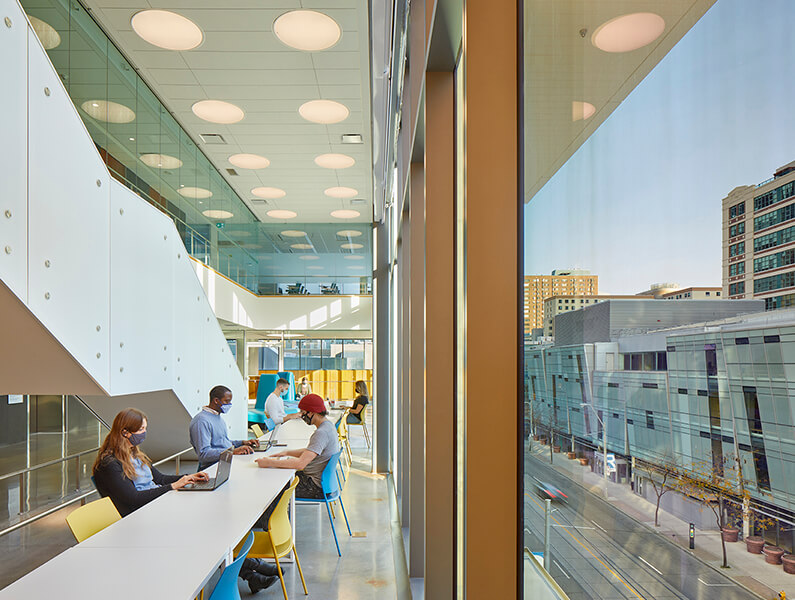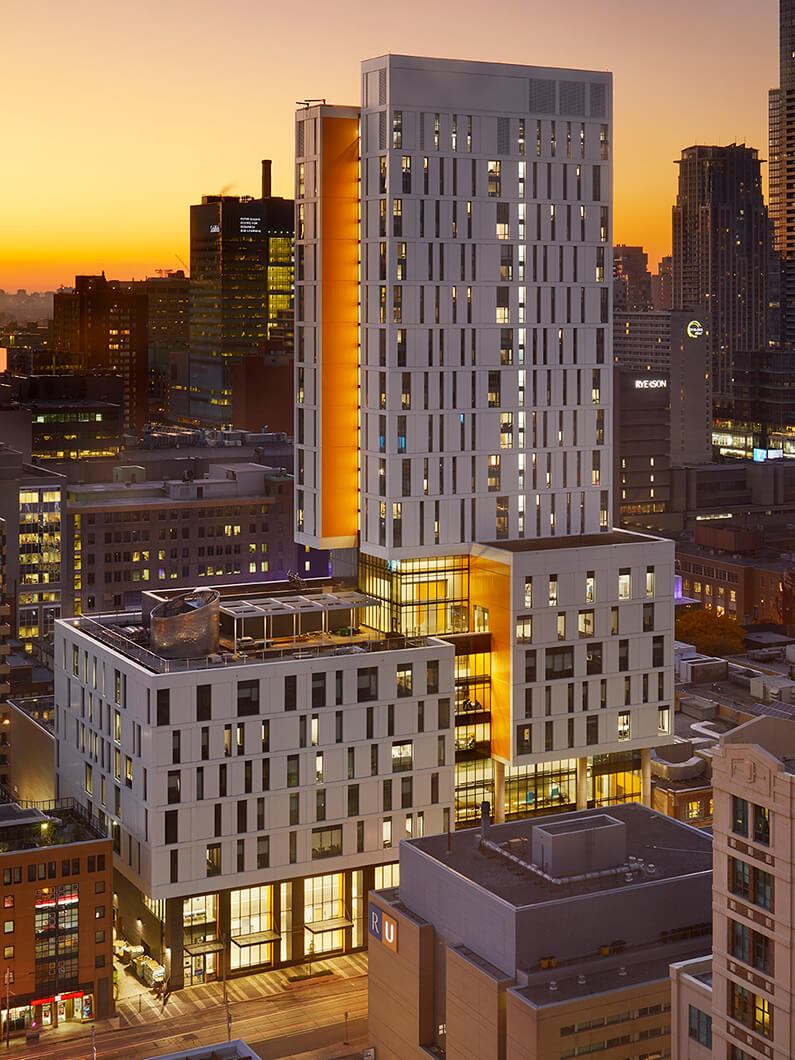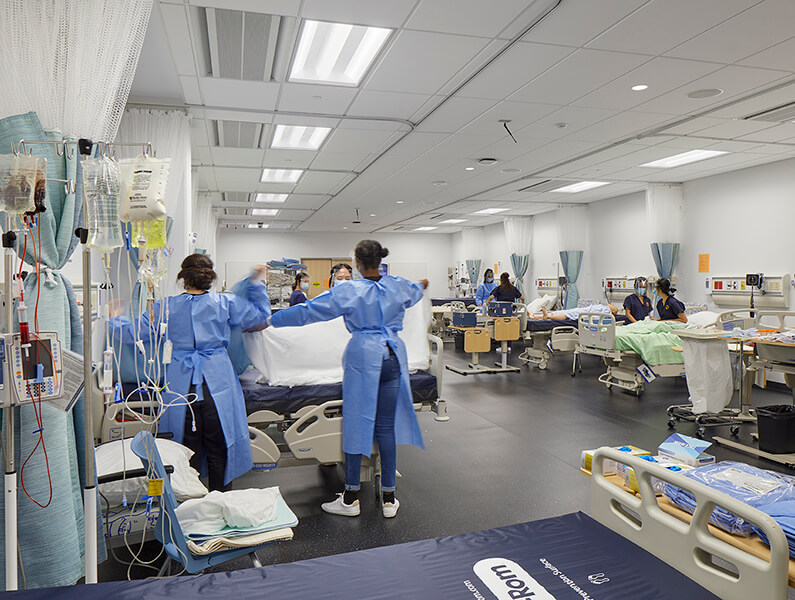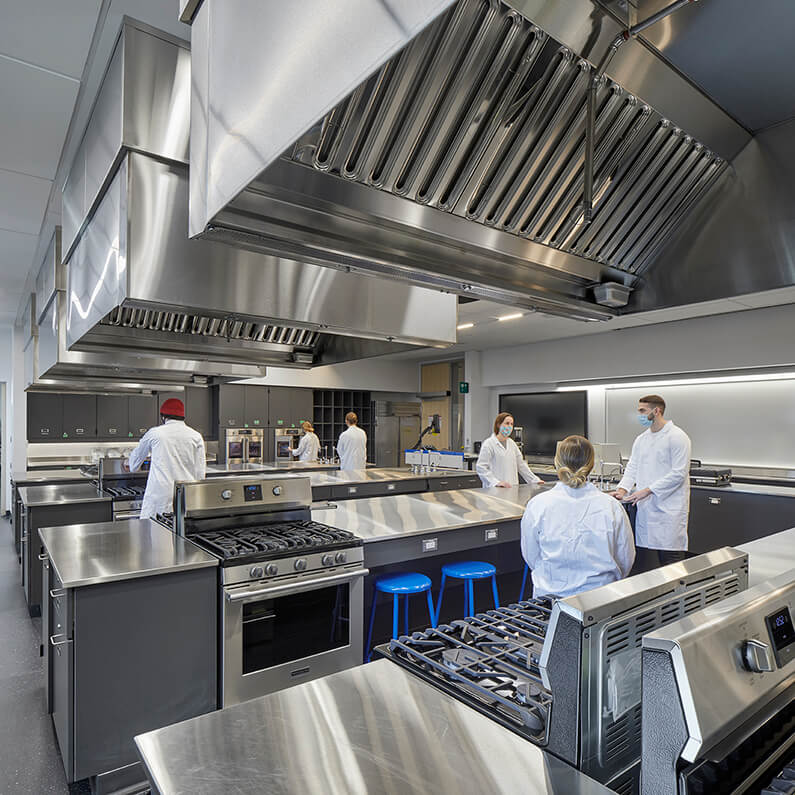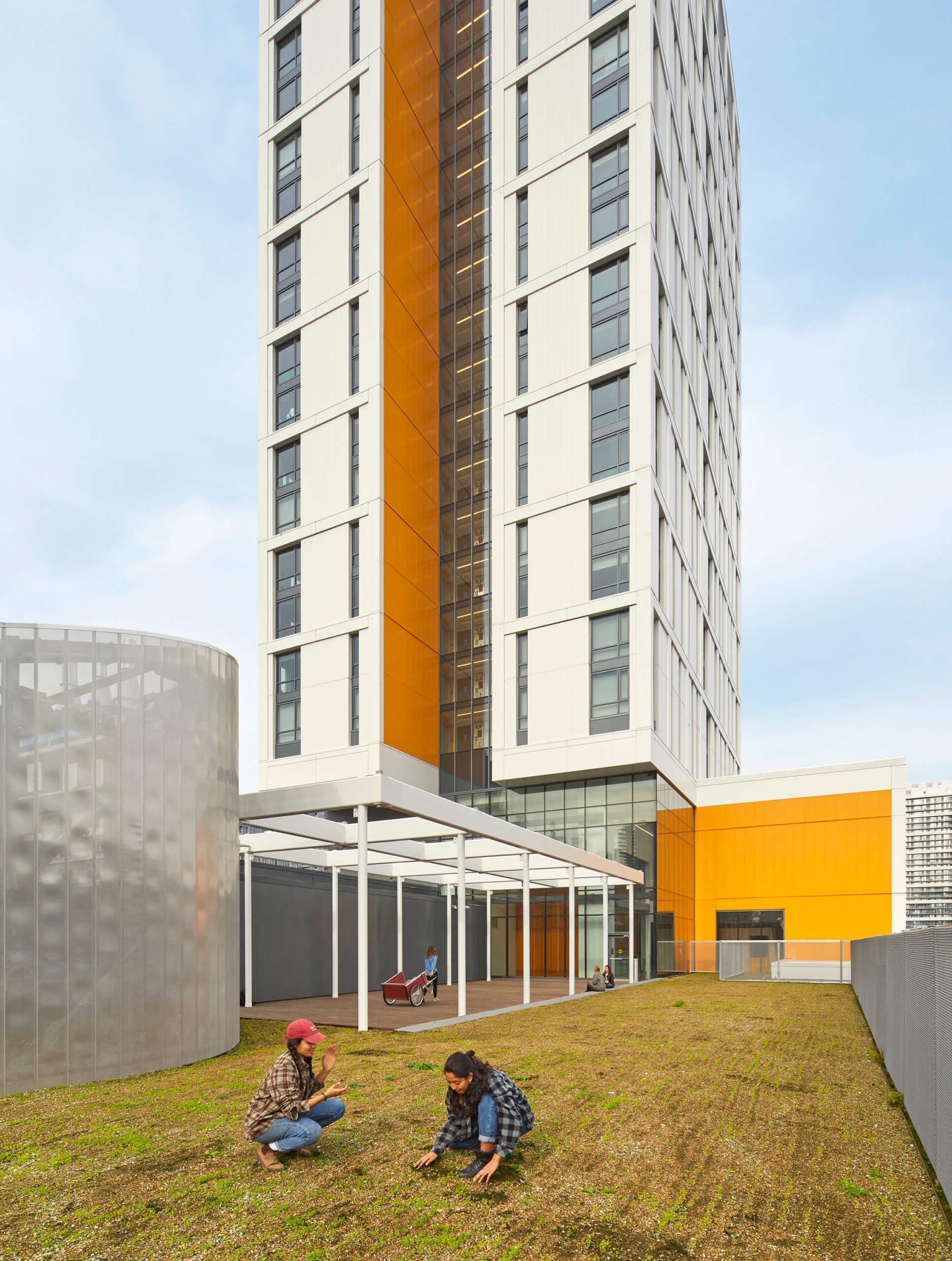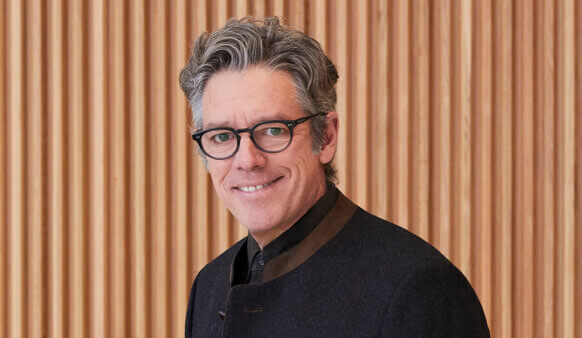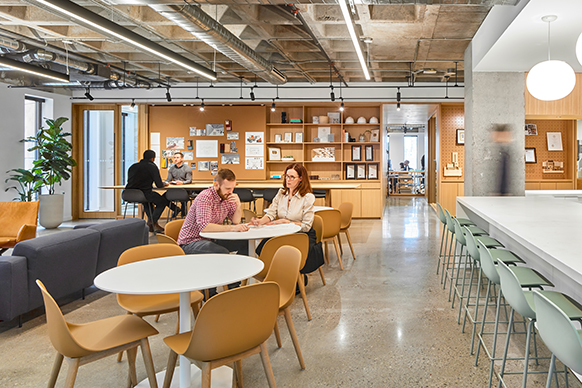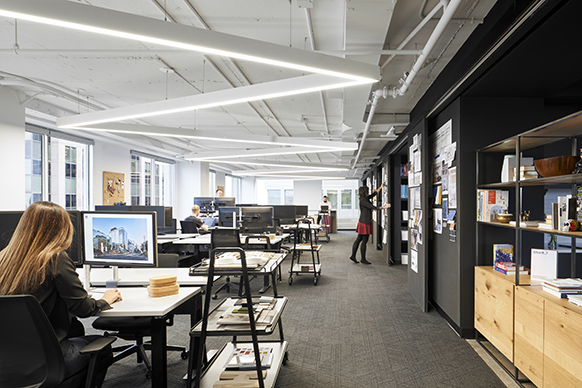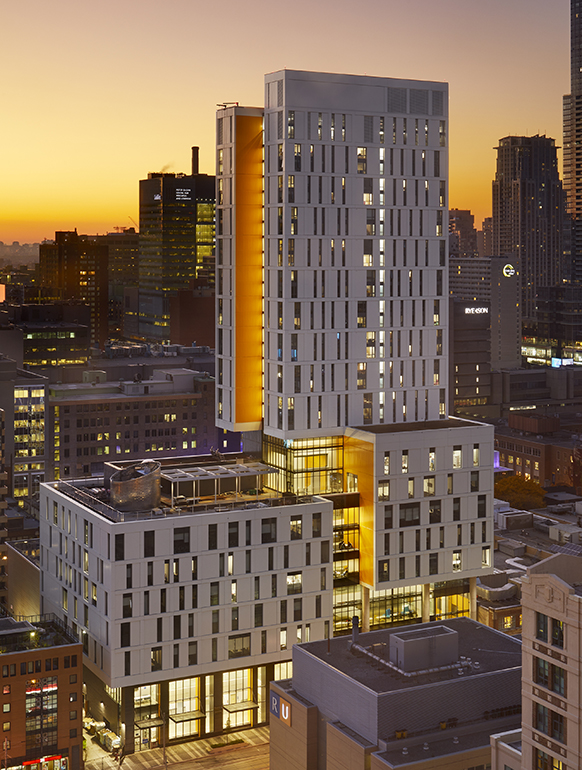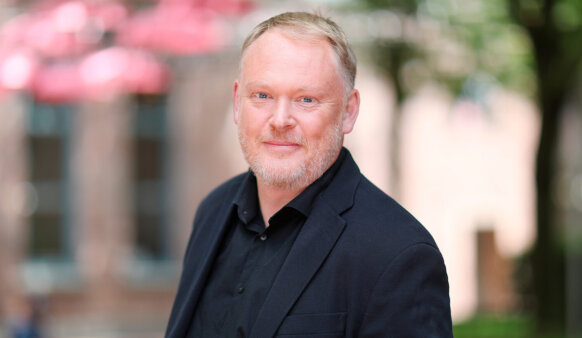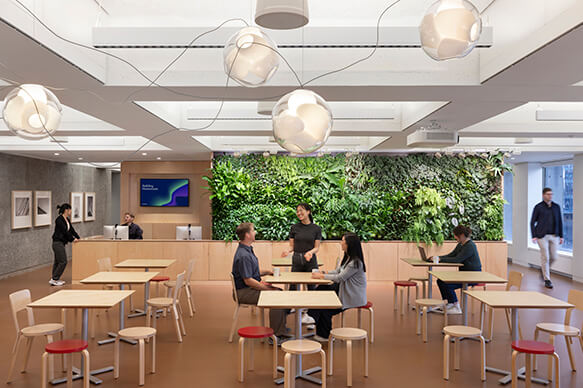Faced with a growing student body and confined urban site, Toronto Metropolitan University engaged global architecture and design firm Perkins&Will to create a new hub of academic excellence and student life. The 28-storey Daphne Cockwell Health Sciences Complex, a winner of the 2021 Best Tall Building Award by the Council on Tall Buildings and Urban Habitat (CTBUH), is located in Toronto’s dense downtown core, connecting students to the vibrancy of the city while unifying Toronto Metropolitan’s academic and residential functions.
